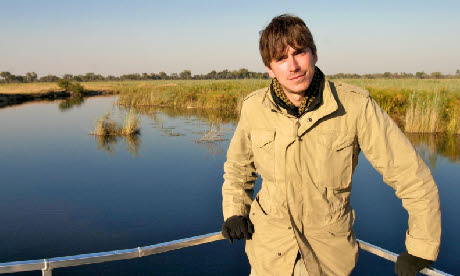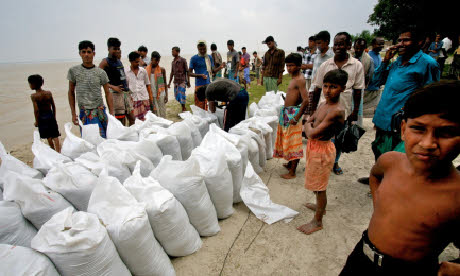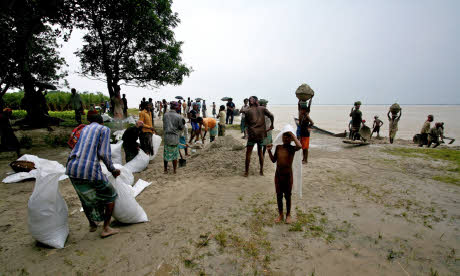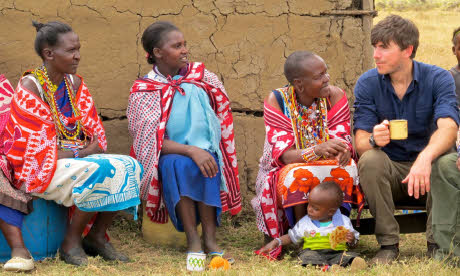
Simon Reeve: “I see the reality of climate change everywhere I go”
What is the true impact of global warming? Simon Reeve – who's ventured to over 120 countries – should know. Here, he shares his tales from the road, and ponders what we can do to protect the earth
Simon Reeve has certainly seen a sizeable slice of the world: as a TV travel presenter, documentary maker and WWF Ambassador he's ventured far and wide, and introduced viewers to the likes of Outback Australia, rural Vietnam and islands all over the Indian Ocean. But throughout his career he's witnessed the devastating effects of climate change, and seen it impact some of his favourite parts of the world.
When did you first learn about climate change?
I’m not sure when I first learned about climate change. It just feels like it’s just been part of my life for most of my existence – and that is something I find really frightening.
Where is the place you’ve been to that you’ve noticed the biggest effects of climate change?
I’m seeing the reality of climate change on the ground almost everywhere I go now, to lesser or greater degrees. I was recently in Kenya in Africa and I was talking to a grandmother from the Maasai community there, a woman called Lucy. She was telling me that she knows their climate is changing, she knows that her way of life may be coming to an end. Her people have herded cattle on the plains of Africa for centuries, but the lack of rain in that area means that it's no longer going to be possible in the future.
But I think the area that I’ve been to which is most effected by climate change is probably Bangladesh. It’s one of my favourite places to visit in the world. I think it’s a very beautiful place with very inspiring people, but my goodness the Bangladeshis really suffer from the impact, and already feel the impact of our change in climate.

I remember going on a boat down a river in Bangladesh and seeing the bank of the river being eroded and eaten away as we watched, and of course it’s perfectly normal for there to be erosion of a river bank by the river, but scientists are absolutely convinced that what’s happening in Bangladesh is an increased rate of river erosion, partly or largely caused by an increasing melt in the mountains in which the river has its source. So I was seeing peoples’ land being clawed away not by the river, but by our change in climate as well. And it was very upsetting to see the people in the village in tears; they were pulling their hair out because they’re poor, they are desperate and their only means of providing for their families is being taken away from them. It was very upsetting.

What do you think threatens the world the most?
Ultimately, it’s us. It’s our power, our ability to transform the landscape. It’s our short term-ism, it’s the fact that we’re not thinking about what consequences our actions will have for future generations, and it’s our pure greed, our desire to consume and accumulate. These combined elements are having a colossal and catastrophic impact on many of the world’s most amazing places.

What changes have you made to lessen your impact on climate change?
For a start, I use my vote. I think carefully about who I want as my leader. I’m desperate for us to have people who will ask us to do difficult things rather than just offering us everything we want.
In a democracy I think that’s the main power we have, but then the second power is what we buy, what we consume. I think it’s very important that we all remember if we’re lucky enough to live in a country where fresh water comes easily out of the tap then individually our impact on the planet exceeds that of some small villages in some parts of the world. So we have a responsibility to be careful with what we do and how we do it.
Do you feel that it is the responsibility of individuals as well as big business and politicians?
We as individuals in a democracy have incredible power with who we elect and with what and how we consume. We can ask questions of the companies who provide us with stuff and we can try and make them behave in a sensible and sustainable way.
Think you know all about climate change? To test your knowledge, try WWF’s mythbuster quiz...



